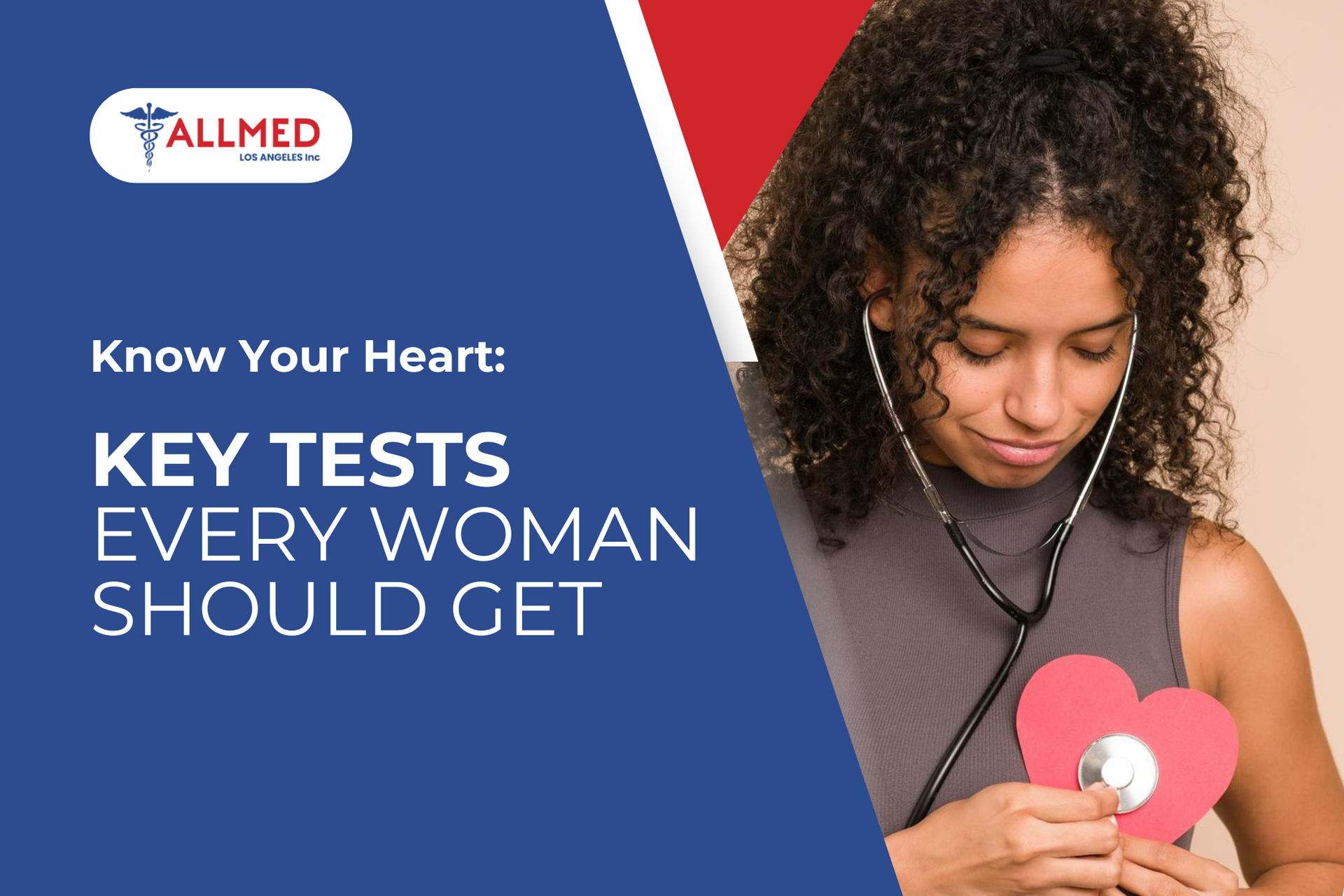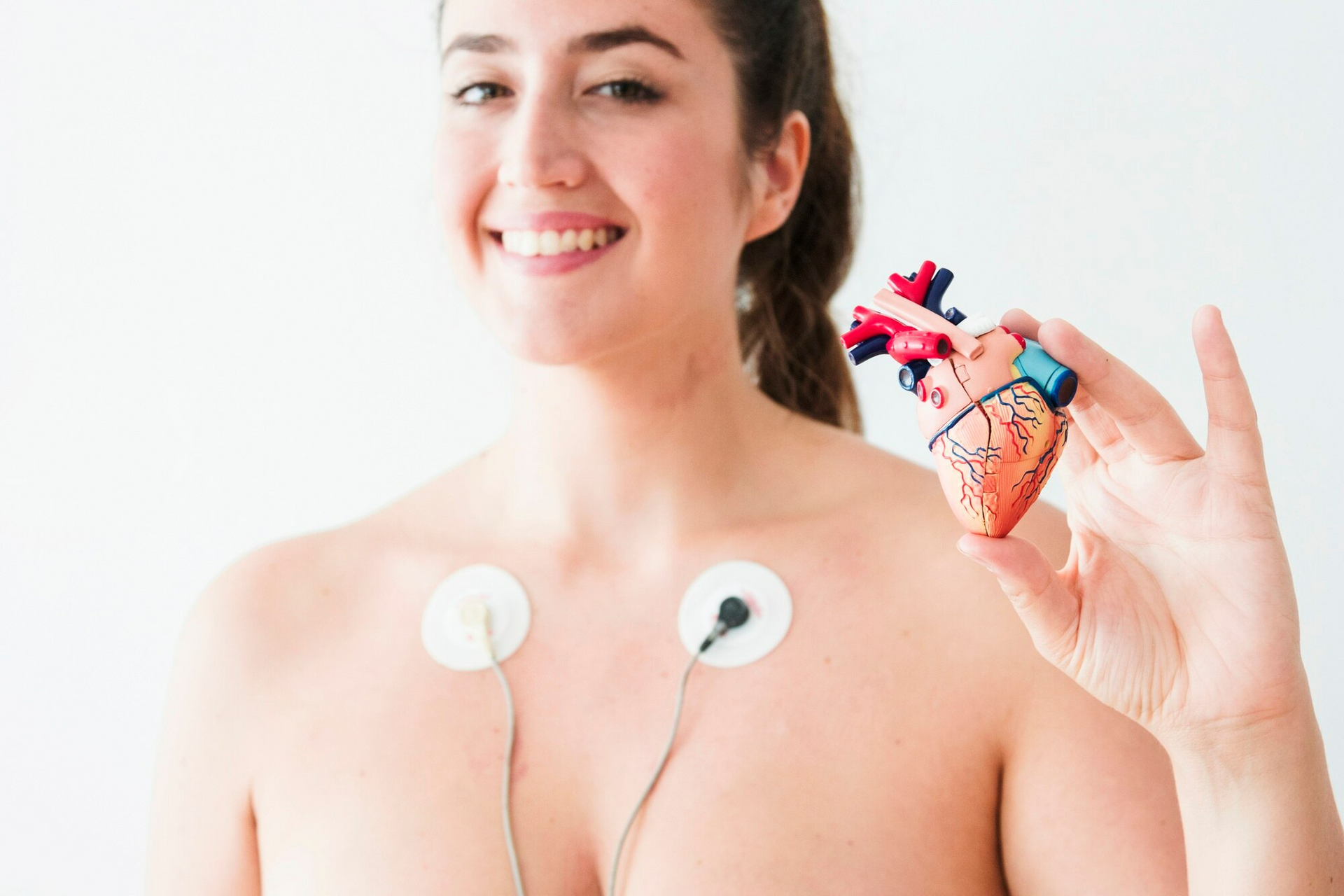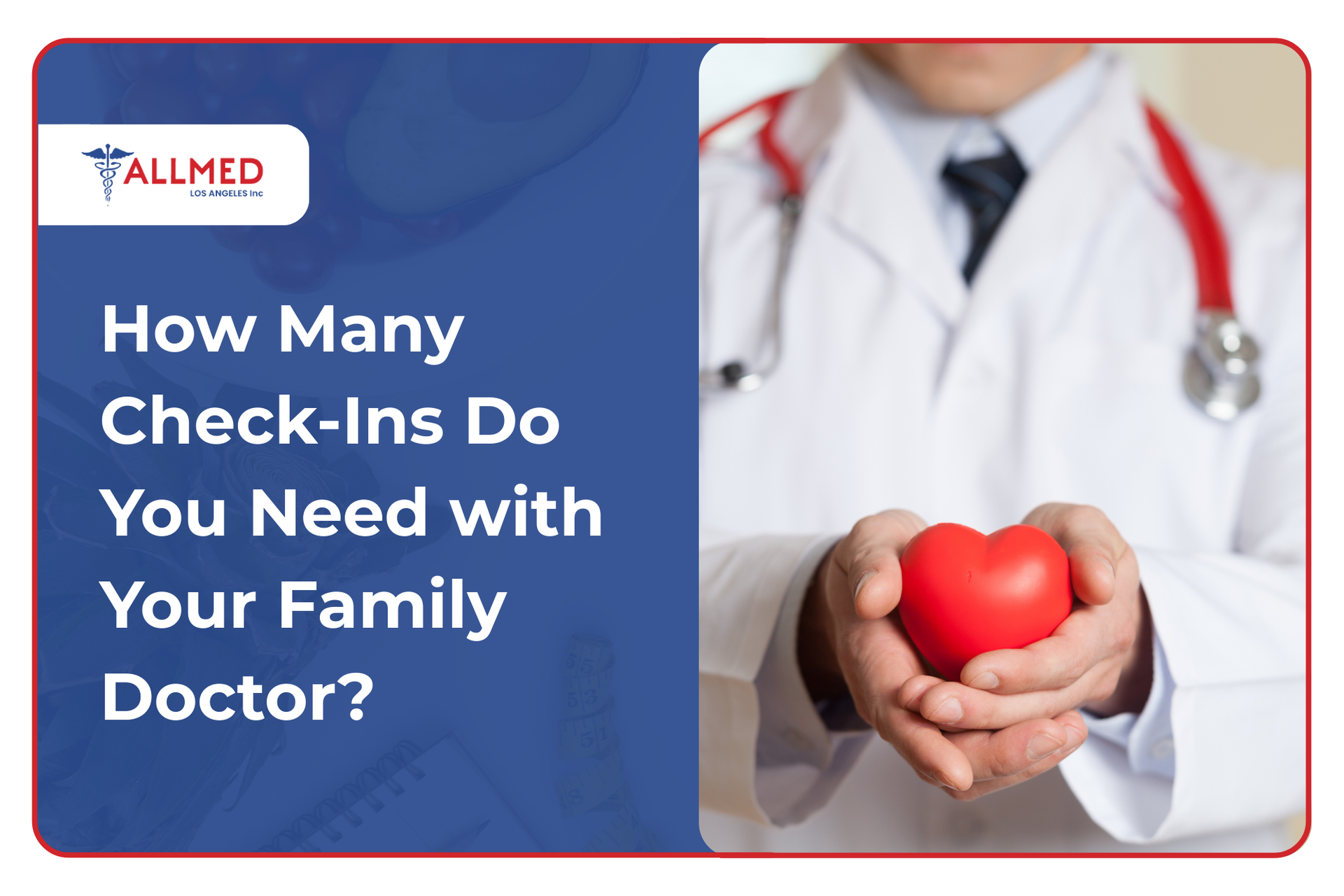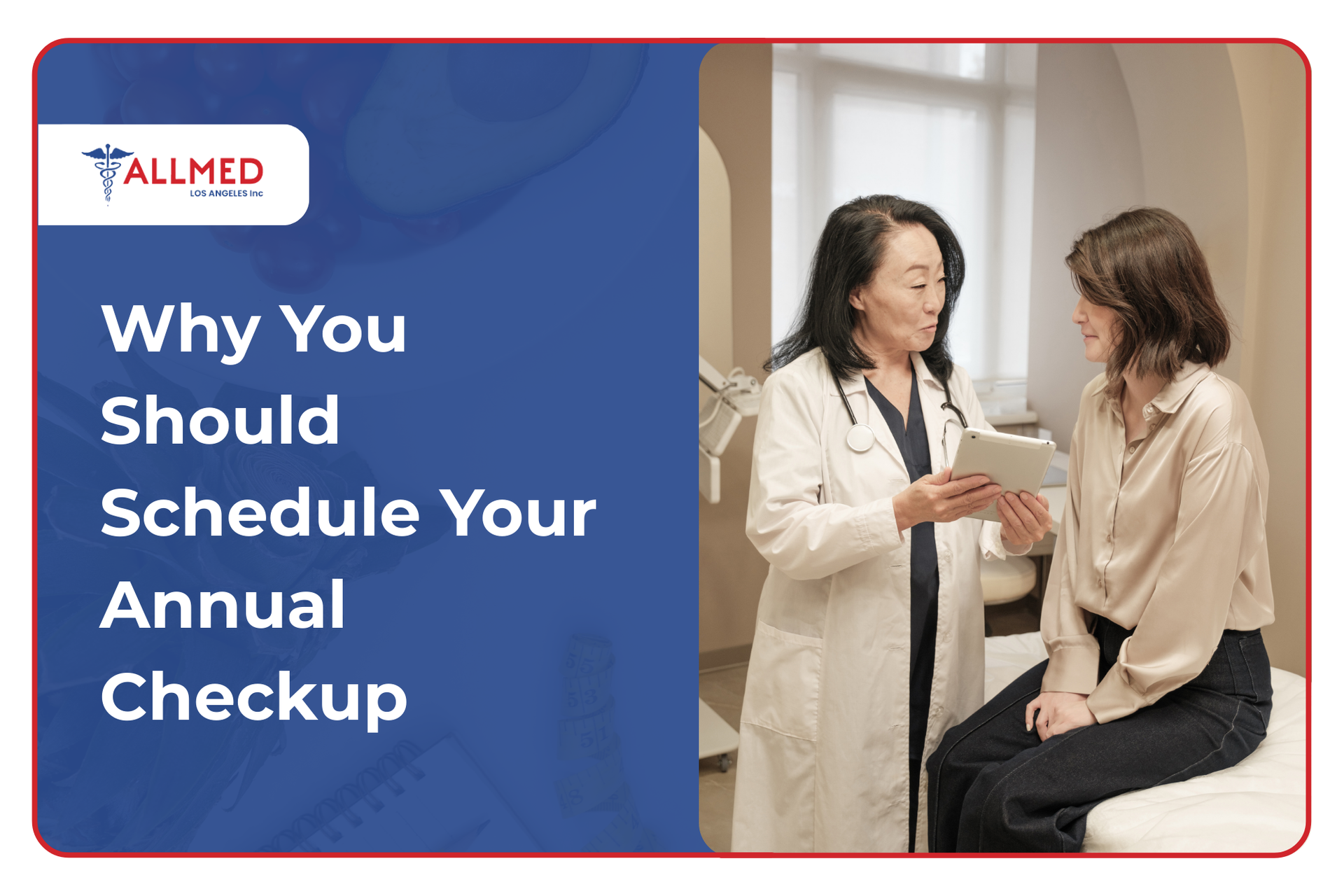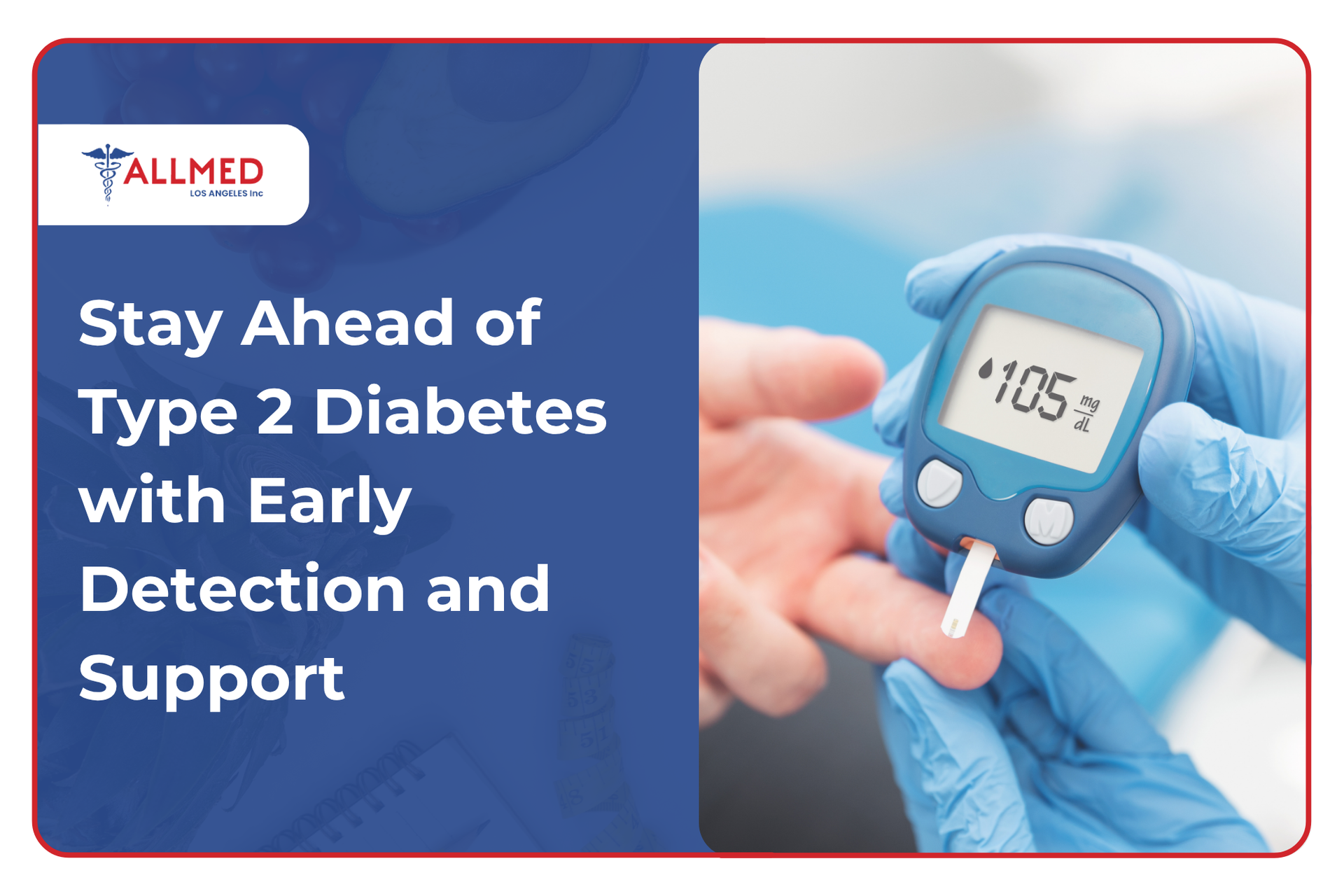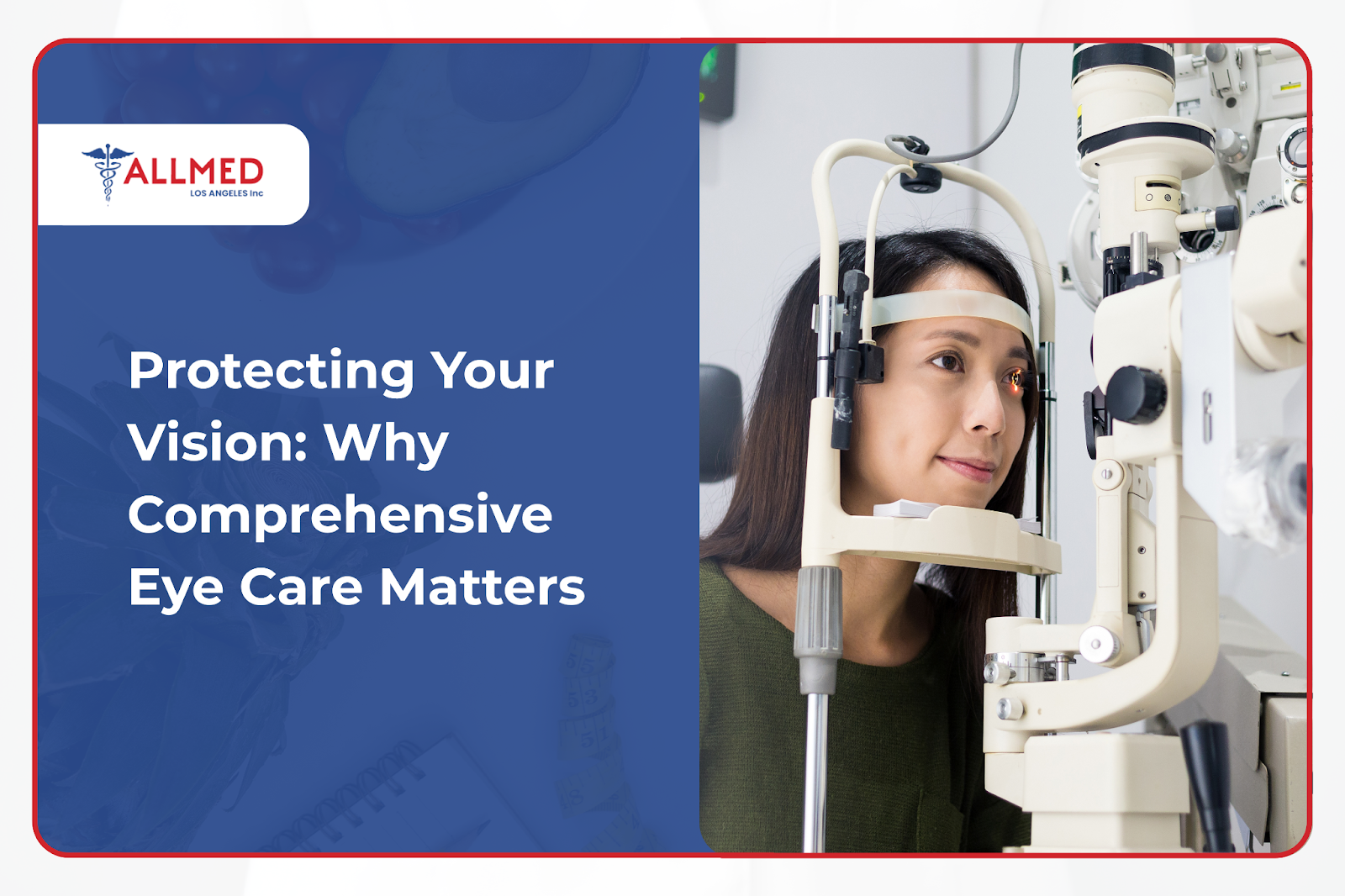Your heart works tirelessly every moment of your life, but heart disease stands as the top threat to women’s health. Alarmingly, the Centers for Disease Control and Prevention (CDC) reports over 60 million in the U.S. are living with this condition, and it can affect women at any age.
The good news? Simple tests like blood pressure checks and EKGs can catch heart problems early. There’s no better time than now to put your health first! By learning and understanding heart disease symptoms in women, the chances of maintaining a healthy heart significantly improve.
Let’s make heart health a priority—for ourselves and the women we love by scheduling a women’s health checkup at
Allmed LA today. After all, a healthy heart means a healthier, happier you!
Your Journey Towards Better Heart Health
Understanding Women's Heart Health
Heart disease doesn’t look the same to all women. While chest pain is a common sign, many experience more subtle symptoms, such as:
- Fatigue that won’t go away.
- Unusual sweating or a feeling of anxiety.
- Shortness of breath, even with mild activity.
- Back, jaw, or neck pain that isn’t caused by an injury.
- Nausea or dizziness that seems unrelated to food or illness.
These symptoms are often mistaken for stress or exhaustion, leading many women to miss the warning signs.
Common Risk Factors for Women
Certain conditions and lifestyle factors, from underlying health issues to daily habits, can impact one's risk of heart disease.
Medical Conditions
Often called the “silent killer” because it has no obvious symptoms, uncontrolled blood pressure can put extra strain on your heart.
Diabetes impacts men and women differently, with women facing a higher risk of heart disease due to hormonal factors and delayed diagnosis. High blood sugar levels can damage blood vessels and the nerves that support heart function, increasing complications.
Lifestyle Factors
Juggling work, family, and daily responsibilities can take a toll on your heart. Prolonged stress leads to high blood pressure, inflammation, and unhealthy coping habits.
Women who smoke have a greater risk of heart disease than male smokers, as estrogen amplifies smoking’s harmful effects on blood vessels. Even light smoking significantly raises the likelihood of heart problems.
Reproductive & Metabolic Factors
Conditions like polycystic ovary syndrome (PCOS) can impact insulin resistance and increase heart disease risk.
Pregnancy-Related Conditions
During pregnancy, complications like preeclampsia or gestational diabetes can raise long-term heart risks.
The decline in estrogen levels during menopause can lead to increased cholesterol, higher blood pressure, and a greater risk of heart disease.
Recognizing these risks and understanding how heart disease presents differently in women is the first step in protecting your heart. Up next, let’s talk about the essential tests that can help you stay ahead of heart disease.
Essential Heart Health Screenings for Women
Routine screenings or
annual wellness exams are the key to keeping your heart health in check. Here are the key tests every woman should get:
Although high blood pressure is one of the biggest risk factors for heart disease, it often has no symptoms. A quick check at your doctor’s office (or even at home) can help detect hypertension early and prevent long-term damage.
Too much “bad” (LDL) cholesterol and not enough “good” (HDL) cholesterol can lead to plaque buildup in your arteries. A cholesterol test measures:
- LDL (“bad” cholesterol): Can clog arteries and increase heart disease risk
- HDL (“good” cholesterol): Helps remove excess cholesterol from your bloodstream
- Triglycerides: High levels can also be a warning sign of heart problems
Diabetes and heart disease are closely linked. Elevated blood sugar can damage blood vessels, making heart problems more likely. A fasting blood sugar test or an A1C test (which measures blood sugar levels over time) can help assess your risk.
- Electrocardiogram (ECG/EKG)
An EKG records your heart’s electrical activity, detecting irregular heart rhythms that could signal underlying issues. It’s a quick, painless test that can offer valuable insight into your heart’s health.
This test monitors your heart while you exercise. It helps doctors assess how well your heart functions under pressure and can reveal blockages that might not appear when you’re at rest.
Your Next Steps
Talk to your doctor about which screenings you need and how often to get them—because knowledge is lifesaving when it comes to your heart.
How Often Should Women Get Heart Screenings?
Knowing which tests to get is just the first step—timing matters too. The right screening schedule depends on age, risk factors, and family history. Regular testing ensures early detection and better heart health.
General Screening Guidelines
- Blood pressure: Check at least once a year, starting at age 20 or more often if readings are high.
- Cholesterol: Every 4 to 6 years starting at age 20 or annually if at risk.
- Blood Sugar: Screen every 3 years after age 35 or earlier if you have risk factors.
- ECG/EKG: Conduct as needed based on symptoms or family history.
- Cardiac Stress Test: Typically for women over 50 or those with risk factors.
High-Risk Individuals Need More Frequent Testing
If you have high blood pressure, diabetes, obesity, or a family history of heart disease, your doctor may recommend screenings more often. Smoking, high stress, and an inactive lifestyle also increase your risk, making regular checkups even more important.
Family History Matters
Even if you feel healthy, having a family history of heart disease can still increase your risk. If your close relatives had heart issues at a young age (before 65 among women), talk to your doctor about starting screenings earlier.
Take Action Now
Heart disease doesn’t wait. So why should you? Make sure to keep up with your screenings and work with your doctor to create a plan that keeps your heart strong for years to come.
Proactive Ways to Maintain a Strong and Healthy Start
Getting the right tests is crucial, but maintaining overall wellness starts with everyday habits. Here’s how you can take control of your cardiovascular well-being:
Make Heart-Healthy Choices Every Day
Focus on whole foods like lean proteins, fruits, vegetables, and healthy fats. Cut back on processed foods, added sugars, and excessive salt as much as possible.
Aim for a minimum of 150 minutes of moderate exercise per week. Walking, swimming, or even dancing can strengthen your heart.
If you smoke regularly, you have a higher risk of harming blood vessels, which can ultimately lead to heart disease. The sooner you quit, the better for your heart.
Manage Stress and Prioritize Sleep
Try deep breathing, yoga, or simply taking breaks throughout your day.
Aim for 7 to 9 hours of quality sleep each night to help regulate blood pressure and support overall wellness.
Take Charge of Your Heart Health
Prioritizing cardiovascular wellness doesn’t have to be overwhelming—small, consistent steps make a big impact. At
Allmed LA, we’re committed to supporting you on this journey. Our comprehensive services include routine screenings, nutrition consultations, and
telemedicine options designed to make heart health accessible and manageable.
By scheduling regular check-ups and embracing heart-healthy habits, you’ll safeguard your well-being and inspire those around you. Remember, prevention is powerful, and taking action now ensures your heart serves you well for years.
Don’t wait for symptoms to appear. Book a consultation with our experts
today. Encourage your loved ones to do the same and embark on a path to a healthier heart together.




